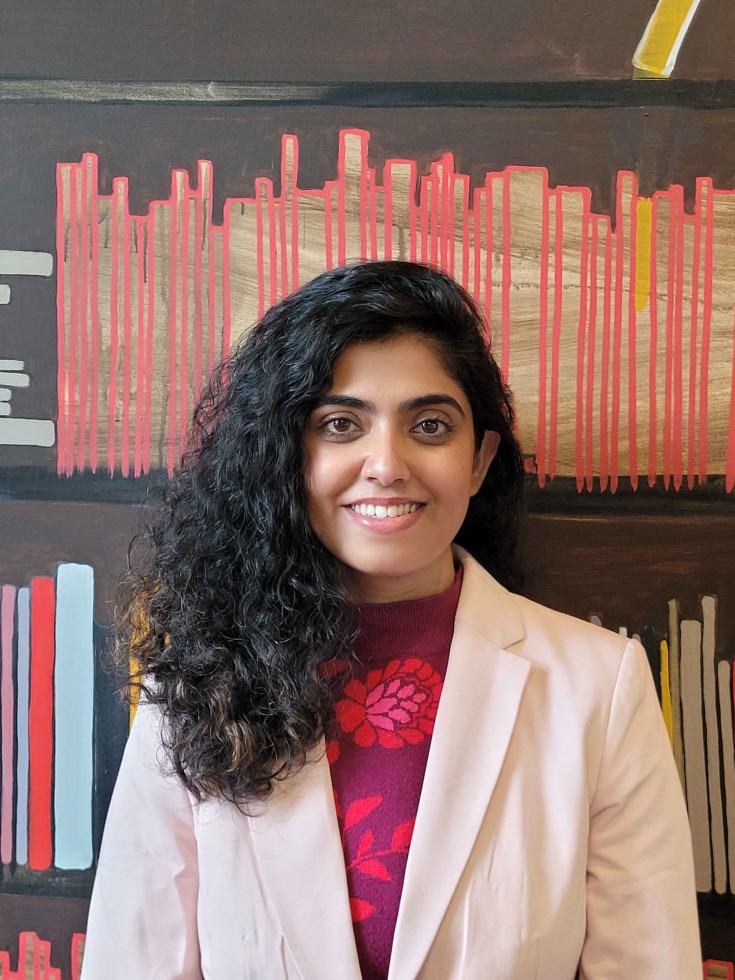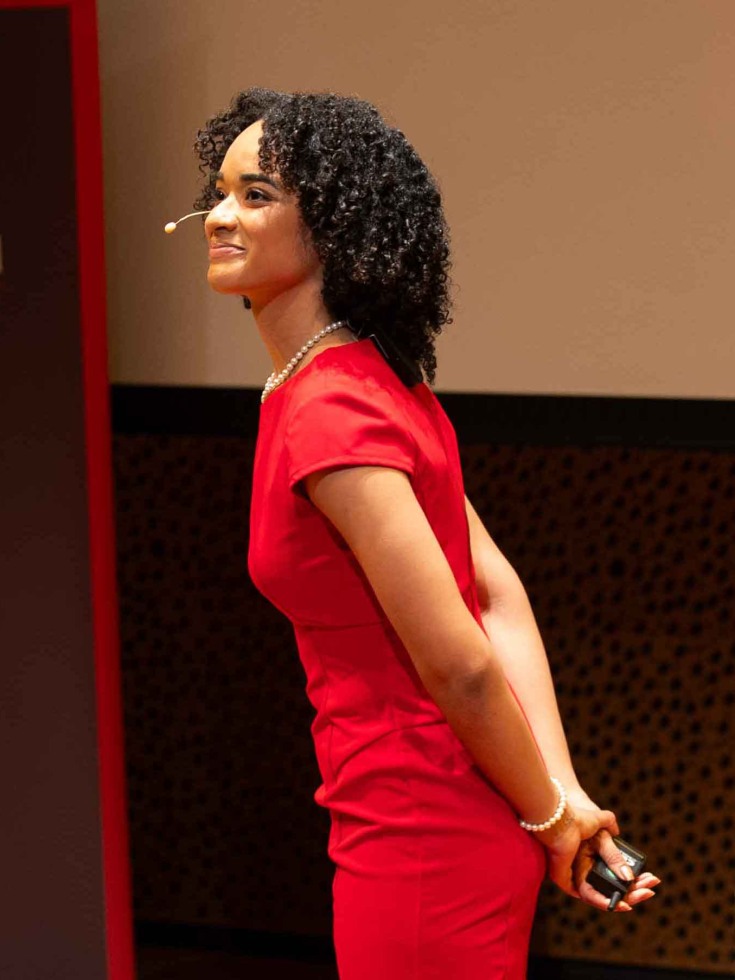“I explore these double-marginalized figures within this developing canon to think about how we break from dominant cultural and intellectual models,” Ferdinand-King said. “I want to look for ways to open ourselves up to creating new possibilities for civic engagement, community-building, imagination and ethical cultural strategy.”
Along the way, Ferdinand-King has committed herself to breaking down a different model — that of the scholar who is disconnected from the communities around them. In her work beyond the Van Wickle Gates, she has curated art exhibitions at Brown, RISD and venues across the world. She’s also co-director of the Vanta Guild, Providence’s first Afrodiasporic photography collective.
She co-founded the RISD Museum’s Black Biennial, which has had iterations in 2022 and 2024, and her 2023 exhibition titled “Poiesis: Street Culture and the Art of the City” drew more than 1,000 attendees on opening night and featured more than 30 artists working at the nexus of urban design and futurism. Most recently, she curated “Art and the Freedom Struggle: The Works of Mumia Abu-Jamal” at Brown’s Ruth J. Simmons Center. For that project, she assisted with the acquisition of Abu-Jamal’s archival records, writings and artwork as part of a Pembroke Center fellowship in 2021.
Ferdinand-King believes that cultural experiences will increase public appreciation for the humanities and engagement with the local arts. It’s unfortunate, she says, that the arts and culture sectors often don’t command the same respect as STEM fields, when both are essential and can work in conversation with each other.
“When it comes to fields like public health or biomedical engineering, a lot of the work is trying to understand people's experiences, interactions with each other and their interplay with advanced technology or medicine,” she said. “A considerable aspect of scientific research draws from qualitative datasets and humanities-based work, but we don't typically acknowledge their significant overlap, and we don’t give the humanities the same intellectual credit.”
In her address to her fellow Ph.D. graduates, Ferdinand-King hopes to inspire her fellow Ph.D. graduates not to wall themselves off, either within academia or within their own disciplines.
“As an active resident and participant in the Providence and broader New England community, I want to not only advance knowledge, but to cultivate meaningful exchange with communities toward new solutions for change,” she said. “I felt like we needed a Commencement speech that discussed the cultural landscape, and how we can use our roles to enrich both academic scholarship and everyday encounters through mutual growth, education and shared purpose.”
Ferdinand-King says she recognizes that this expansiveness might be outside the comfort zone of some scholars, but she hopes Brown’s graduates will reimagine the conventional.
“My message is to defy expectations and challenge yourself to be more than the traditional,” she said. “And trust yourself — trust yourself enough to show up in spaces where you're needed, even if you don't feel like that particular path was originally carved out for you.”
In that, Ferdinand-King has led by example. She’s worked not only to create original research, but also to create ways for knowledge and experience to be accessible in spaces where it can have the greatest impact. In the future, she says she plans to work with local organizations and academic institutions to revitalize cities and urban development through “thought design” and cultural strategy, beginning in Providence.


